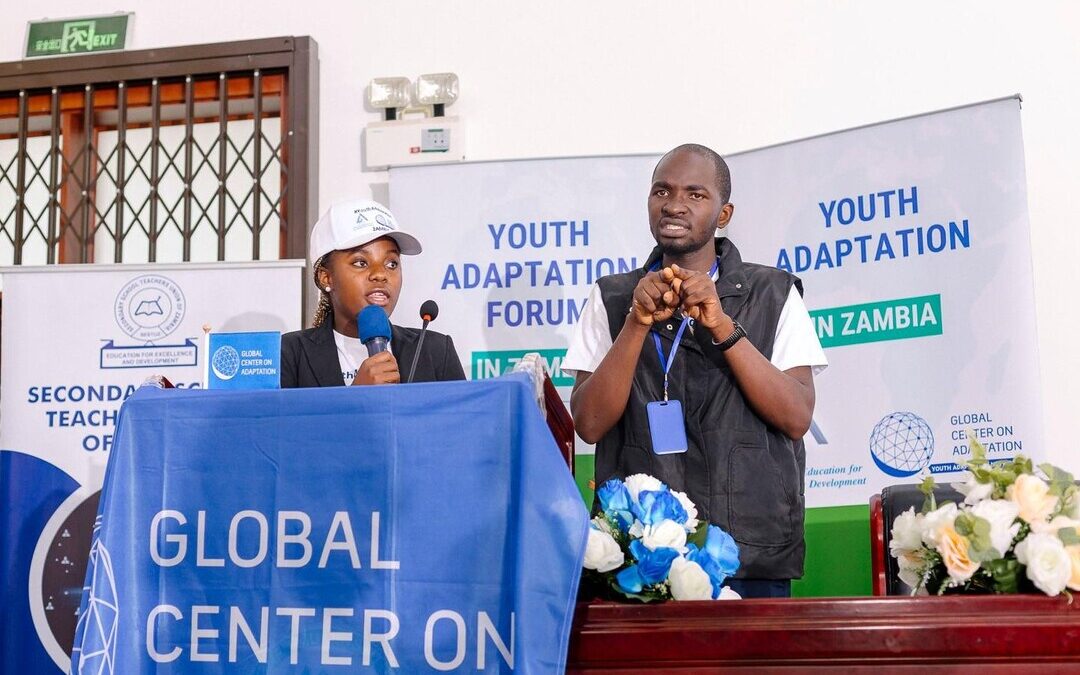Climate Finance Shortfalls Slow Developing Nations’ Adaptation Efforts
UN report highlights uneven progress in climate adaptation as developing nations face finance and governance gaps.
Most developing countries have set up institutional frameworks and mechanisms to tackle climate risks. Still, their efforts remain constrained by limited finance, weak capacity and fragmented governance, according to a new United Nations report assessing progress on climate adaptation.
The “2024 Synthesis Report on Institutional Arrangements and Stakeholder Engagement,” prepared under the UN climate convention, found that over 80 percent of developing countries now have legal or policy frameworks for adaptation, and more than 90 percent have lead institutions or coordination mechanisms in place.
However, only about a third have formalized systems for inclusive stakeholder participation, exposing gaps in community engagement, particularly of women, youth and Indigenous groups.
Progress but Uneven Engagement
The report noted significant steps in mainstreaming adaptation into national development agendas. Africa has created regional adaptation centers and multi-stakeholder forums, while Asia has integrated national and local adaptation planning.
Latin American countries, including Brazil and Colombia, have decentralized decision-making and increased recognition of Indigenous perspectives.
Despite this, monitoring and evaluation remain weak in many regions, with rural communities in Africa and vulnerable groups in Latin America often left out of planning.
Small island developing states have pioneered community-driven approaches, yet limited financial and human resources have slowed implementation.
Mounting Barriers
Barriers persist across the developing world. Lack of financial resources was identified as the most critical obstacle, with several countries unable to fund their national adaptation plans or invest in resilient infrastructure.
The report cited political instability, institutional fragmentation and poor coordination as additional hurdles, often leading to duplication of efforts or stalled projects.
Technical and data limitations also constrain adaptation. Many countries lack reliable climate information, undermining risk assessments and evidence-based policymaking.
Social and cultural barriers further weaken inclusivity, with traditional knowledge often excluded from official planning processes.
Lessons from case studies
Case studies showcased both innovation and strain.
- Bangladesh invested $5 billion in climate-resilient infrastructure such as flood defenses and drainage systems, emphasizing participatory planning through community consultations.
- Kenya allocated $1.2 billion to strengthen institutional capacity, creating adaptation units within ministries and funding multi-stakeholder platforms to broaden participation.
- Viet Nam advanced climate finance by using green bonds and investment funds while coordinating ministries and local governments to align adaptation and mitigation goals.
- Haiti, one of the most climate-vulnerable countries, earmarked $700 million for institutional strengthening and training to bolster resilience, though limited resources continue to slow progress.
Elsewhere, Brazil’s climate panel consolidated scientific research to guide national policy, while Chile’s ARClim platform made climate risk data publicly accessible, enabling participatory governance.
In the Pacific, a climate finance assessment framework helped governments improve transparency and mobilization of funds.
Gender and Inclusion
The report highlighted an increase in gender-responsive policies, though implementation remains uneven.
Nearly half of adaptation communications and one-fifth of nationally determined contributions from developing countries referenced gender considerations.
Still, women’s participation in decision-making is often limited, reducing the effectiveness of adaptation strategies.
Call for Collaboration
Concluding its findings, the report urged developing countries to strengthen monitoring systems with standardized metrics, improve transparency in financial flows and deepen inclusive participation.
It stressed that international cooperation will be vital, with joint initiatives, research partnerships and knowledge-sharing platforms needed to accelerate adaptation.
“Recognizing the achievements of developing countries in advancing institutional arrangements and stakeholder engagement can encourage continued innovation and cooperation among all Parties,” the report said.
The findings come ahead of the next global stocktake under the Paris Agreement, which will assess how well nations are adapting to intensifying climate impacts.
While progress is evident, the report warns that without stronger financing, technical support and inclusive governance, many developing nations may struggle to meet escalating adaptation needs.
Nirmal Menon
Related posts
Subscribe
Error: Contact form not found.


